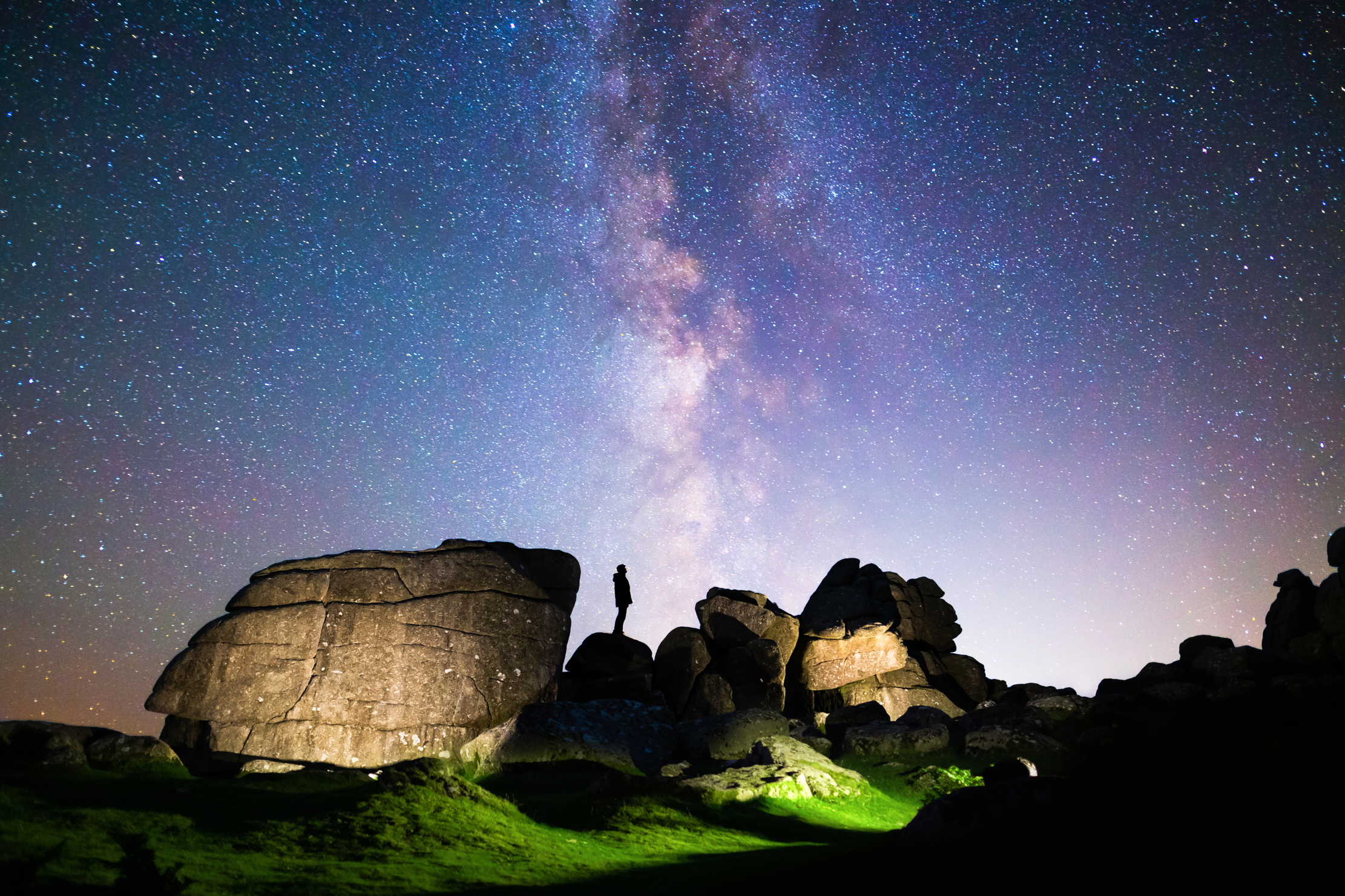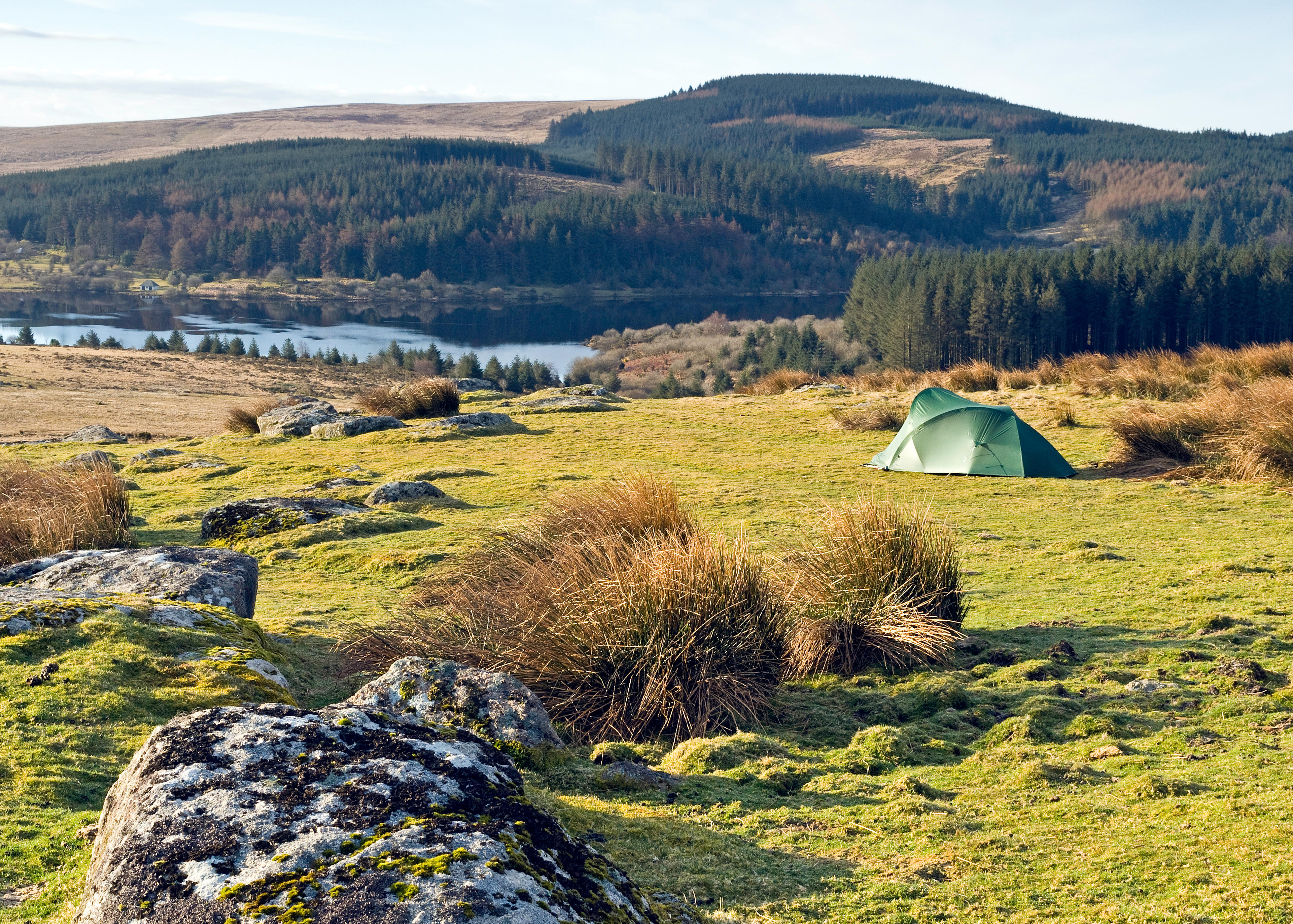'Dartmoor is the ultimate one-billion star hotel': Why wild camping matters
Following the ruling from the Supreme Court, revisit Lewis Wink's argument on why the right to wild camp in Dartmoor is vital for us all.


This article was originally published in February 2025. In May, the Supreme Court ruled that the public are legally allowed to camp in areas of Dartmoor without the landowner's permission.
Over the past two years Alexander Darwall, who owns the Blachford Estate on Dartmoor, has likely spent hundreds of thousands of pounds taking the National Park Authority to court (for which the NPA will be liable if he succeeds).
His aim was to challenge bylaws that give the public a legal right to wild camp on Dartmoor — the last place in England where it is currently lawful.
A final decision on the case, which has proved intensely controversial and provoked a fierce backlash from access campaigners like myself, as well as the public at large, now rests with five Supreme Court judges. In a recent article for Country Life, Darwall laid out his claims.
Darwall refers to Dartmoor as ‘one of England’s last and most valuable wildernesses’, which he also believes is ‘one of the most vulnerable’. He points to the pressure of visitor numbers; erosion damage caused by footfall and the compression of ground by camping tents; the risks dogs pose to wildlife; and the impact of anti-social behaviour on landowners like himself.
In the past four years of campaigning for a right to roam in England and Wales, we have become all-too familiar with such arguments. Their habit is to sentimentalise wildness in order to justify excluding people from it, regardless of where the evidence leads. The problem is the evidence nearly always demonstrates that such justifications are wrong.
Firstly, Dartmoor is not a wilderness; at least not in the sense of an immaculate realm untouched by human hands. If it were, its ecosystems might not be in such a sorry state. The reasons for this have little to do with public access, and even less to do with wild camping.
Exquisite houses, the beauty of Nature, and how to get the most from your life, straight to your inbox.
Natural England, the government's advisor on nature, points to three reasons for Dartmoor’s degraded condition: drainage, agricultural burning and grazing pressures. Land (mis)management is Dartmoor’s primary concern.
In the Fursden report, cited by Darwall, which investigated the causes of damage to Dartmoor’s protected sites, impacts from access and wild camping didn’t even warrant a mention. That is not surprising: other evidence from Natural England shows that public access ranks far down the list of issues affecting protected sites nationwide, while agriculture comes in at number one.
To imply wild camping is somehow central to Dartmoor’s conservation concerns therefore tests the limits of credulity. All the evidence points to the mismanagement of the commons at the hands of landowners and commoners; incentivised by a history of short-sighted subsidies.
'The gift wild camping extends is one of freedom and choice. The freedom to decide how far one walks that day, the opportunity to choose whether to lay down next to a stream, or in the granite shelter of a tor'
Darwall blames footfall and the overnight establishment of camping tents for disturbing Dartmoor’s ground, claiming it comes at the expense of insects like ground nesting bees. Yet the footprint of such activities is so miniscule as to barely be worth comment. It also smacks of hypocrisy when his own estate was happy to establish a pheasant pen next to a National Nature Reserve, despite potential risks to nationally rare ground beetles and other fauna.
Even the issue of wildfire, which Darwall rightly notes as a challenge for our uplands, has comparatively little to do with accidents stemming from wild camping.
According to a decades worth of data we obtained from the fire service, 93% of out-of-control wildfires on Dartmoor occurred outside of the wild camping zone and Special Area of Conservation, and were concentrated during March and April: peak season for the controversial act of swaling, the intentional burning off of heather and gorse to encourage fodder for grazing animals. Fires are prohibited under the National Park camping code. Removing the right to wild camp on the commons would do nearly nothing to reduce the risk of out-of-control fires. Claims to the contrary are little more than a smokescreen.
For now, the right to wild camp still exists on 70,000 acres - just 0.2% of England - all of it found on Dartmoor. It has a long and proud history, with records of travellers sleeping under canvas stretching back to the turn of last century.
Later, in the 1960s, the emergence of Ten Tors and The Duke of Edinburgh's award extended opportunities for young people to enjoy experiences of long-distance walking and multi-day adventures, which are only made possible by the ability to camp.
The result has been many thousands of meaningful experiences in nature which have shaped and transformed lives. It was that history which was recognised and further ratified in the 1985 Dartmoor Commons Act. Perhaps it was because of the strength of custom, many generations deep, that the legislators at the time did not foresee a later challenge to this right.
Had they had such foresight, perhaps the Act would have been made stronger than the vague wording which exposed it to legal threat. As it stands, Darwall’s challenge to a set of local bylaws should be seen in context of that rich customary heritage. Just as those who visited the Cairngorms before the Scottish Land Reform Act of 2003 did not wonder if they had a right to be there, nor did the young expedition leaders on Dartmoor in the 1970s.
The gift wild camping extends is one of freedom and choice. The freedom to decide how far one walks that day, the opportunity to choose whether to lay down next to a stream, or in the granite shelter of a tor. No one will bring you breakfast in bed, but Dartmoor is the ultimate one-billion star hotel; furnished with all the trappings of the cosmos.
Now, Darwall claims his intention is not to see wild camping banned in its entirety, but rather for landowners to have the right to determine where and when camping is able to take place. We saw a glimpse of this following the original High Court ruling, which removed the right to wild camp before it was restored by appeal (Darwall has now taken that decision to the Supreme Court for a third round of deliberation, whose decision we await).
Then, the right to camp was replaced with a permissive scheme that removed large areas of land from the camping zones permitted under the 1985 Act, and incentivised participating landowners by paying them a sum of public money. These were also subject to renewal. In other words, such a scheme would enable landowners to remove access indefinitely on a whim. Darwall’s attitude to public use of his landholdings, like that of many other landowners, gives us little confidence he would not ultimately seek to do the same.

'At a time of extinction, both of ecologies and of experience, the right to wild camp is a precious tool for restoring our connection with the living world'
We’ve seen this play out with permissive access in the wider countryside. Even when financial incentives exist, permissive agreements provide little in the way of safeguard.
Under what was the Higher Level Stewardship (HLS) scheme, Natural England reported 43% of permissive routes subject to access payments had been closed after three years. The experiment cost the taxpayer £20 million (double the cost of implementing the Land Reform Act in Scotland, which extended vastly more access in perpetuity) with little lasting legacy when the schemes concluded.
The Countryside Land and Business Association — which lobbies on behalf of major landowners — advises its members to shut permissive routes on the busiest days of the year 'as it serves to remind the largest number of users that path is permissive and permission can be legitimately withdrawn'.
When our access to places that we love is held by such precarious threads, it changes the way in which we see ourselves in relation to the land.
Rights of access codify more than just a set of legal connotations. They provide a reassurance of welcome, of belonging. They offer an open door, rather than one you have to ask for the key to.
Throughout the course of our campaigning we have been inundated with accounts from people who have been wild camping on Dartmoor; young and old, they have in common a love and care for the moors and a profound sense of stewardship — a word which is so often reserved only for those who own the title deeds.
The love and responsibility of the vast majority of those who camp on the moors is a major public asset which we must cultivate if we are to generate the social and political will to change the state of the environment on Dartmoor.
Camping with my daughter on Dartmoor, I wonder how she will come to see this place in her time. Will her experience of this National Park be as mine has been: one of belonging and welcome, even after the sun has set? Or, will it be one of permission; subject to arbitrary attrition and the constant threat of retraction?
If we lose the right to camp on the commons of Dartmoor, something fundamental will be lost with it — the last remaining right to truly be in nature, day and night. At a time of extinction, both of ecologies and of experience, the right to wild camp is a precious tool for restoring our connection with the living world.
Lewis is a writer, researcher and campaigner with Right to Roam and The Stars Are For Everyone. He lives in South Devon with his family and enjoys sleeping under the stars on Dartmoor and elsewhere.
